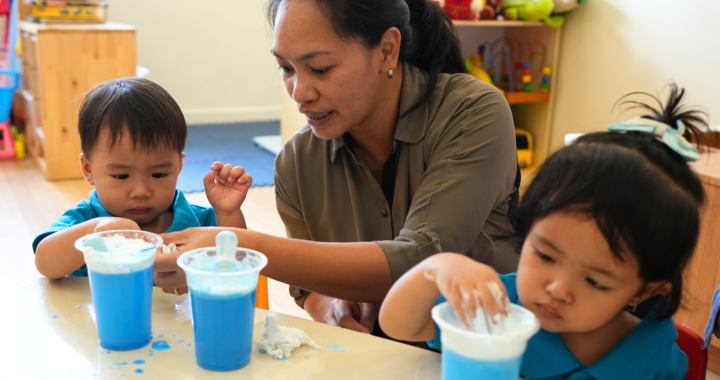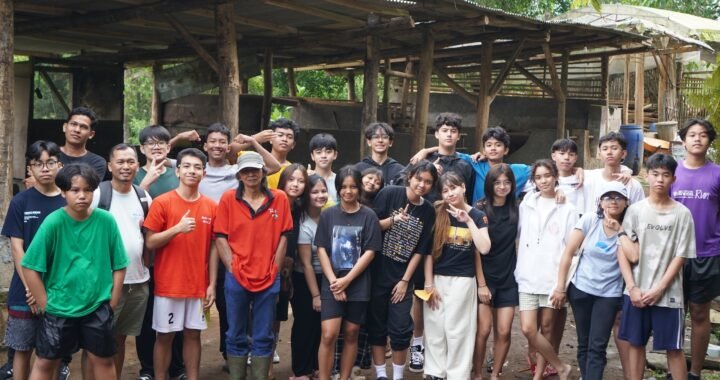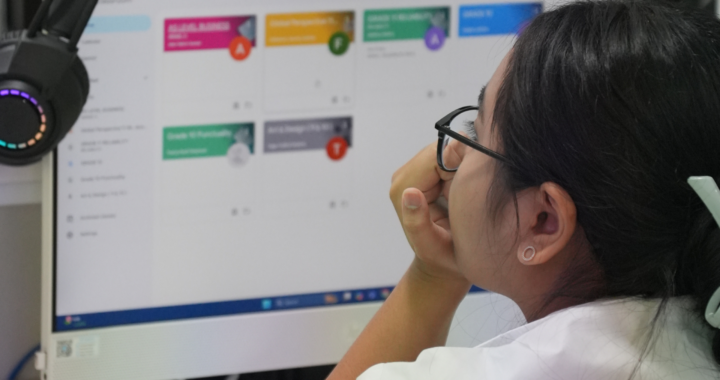The benefits of studying abroad extend far beyond a diploma; they shape character, broaden perspectives, and pave the way for fulfilling careers.
As parents, it is a certainty that you dream of providing your child the tools to thrive in an interconnected world where adaptability, cultural understanding, and resilience could open their doors to endless possibilities.
At Santosa Intercultural School, as an International School in Bali, our Cambridge Curriculum is designed to prepare students for their growth in the diversity world, equipping them with the skills to study abroad in diverse countries like Australia, Singapore, UK and many more.
Drawing from expert insights on how international education boosts career and self-development, this guide reveals why studying abroad could be the transformative step your child needs.
Let’s explore these advantages together, with practical tips to help you support their journey toward becoming confident global citizens.
Why Studying Abroad Matters Now More Than Ever
In a rapidly globalizing economy, studying abroad isn’t a luxury, it’s a strategic investment in your child’s future.
The sad truth about living in Indonesia is that education often focuses only on local contexts, where international experiences immerse students in new cultures, languages, and systems to foster independence and innovation. Meanwhile, studying abroad includes enhanced self-confidence, intercultural skills, and professional networks that simply aren’t accessible domestically.
While Indonesian universities like Universitas Indonesia or Institut Teknik Bandung offer strong foundations, abroad programs expose students to cutting-edge research and diverse point of view, leading to broader career paths.
At Santosa Intercultural School, our Cambridge Curriculum mirrors this by blending Indonesian national standards with international benchmarks, preparing students to seamlessly move out to overseas universities.
Parents, imagine your child returning home not just with a decent degree, but topped with independency and wisdom to contribute meaningfully to their personal growth. That is how impactful studying abroad is.
Mastering Foreign Languages: A Core Benefit of Studying Abroad
One of the standout benefits of studying abroad is the rapid mastery of foreign languages, far surpassing any classroom-based learning in Indonesia.
Immersed in daily conversations, lectures, and social interactions, students naturally build fluency in English, Mandarin, or other languages, depending on their current location.
This isn’t just about grammar, it’s about cultural nuances that make communication authentic and effective.
As for Indonesian students, this skill is a game changer, opening doors to multinational companies where bilingualism is prized.
Unlike domestic studies, where language practice might be limited, abroad environments force practical use, accelerating proficiency.
As an International School in Bali, our bilingual Cambridge Curriculum lays the groundwork, with English-Indonesian integration that eases the leap to full immersion abroad.
Developing Intercultural Skills: The Social Benefit of Studying Abroad
One of the most enriching benefits of studying abroad is gaining intercultural skills through daily interactions with peers from around the world.
This creates tolerance, empathy, and the ability to collaborate across differences, a skill that in Indonesia education, while strong in community values, may not expose to such global diversity.
For Indonesian students, jumping into cultural shocks, like different social norms in Europe can build resilience and broaden their point of view, making them assets in multicultural teams.
Cambridge Curriculum weaves intercultural learning into every lesson, preparing students for their adaptation overseas.
Boosting Self-Confidence
Studying abroad thrusts students into independence, from managing finances to solving everyday problems, dramatically increasing self-confidence.
This self-reliance is a key benefit, as Indonesian students often face less autonomy in familiar home environments. Overcoming homesickness or navigating public transport builds grit and problem-solving skills that last a lifetime.
In contrast to studying in Indonesia, where family support is readily available at any time, abroad experiences teach resilience, leading to mature, adaptable individuals. Many return with a renewed sense of purpose, ready to tackle challenges.
Expanding Career Opportunities
Ultimately, the benefits of studying abroad culminate in expanded career opportunities, with international exposure making resumes irresistible to employers.
Skills like adaptability and global networking give Indonesian students that studying abroad an edge in competitive fields, from business to engineering.
Abroad alumni often secure roles in multinational firms or startups, bringing innovative ideas back to Indonesia. Studying abroad could be the launchpad for your child’s dream career.
How Santosa Intercultural School Prepares Your Child for Studying Abroad
At Santosa Intercultural School, as an International School in Bali, we committed to build a strong foundation to maximize the benefits of studying abroad.
With the Cambridge Curriculum as our base, blended with the richness of Indonesian culture, emphasizes critical thinking, language proficiency, and cultural awareness skills that make transitioning abroad easier for them.
Students engage in projects simulating global challenges, from debates on international issues to collaborative work with diverse peers.
This preparation has helped our graduates secure spots in universities across Europe, Asia, and Australia, reaping the full benefits of studying abroad.
Professional Source from:
https://eduplanindonesia.com/the-benefit-of-study-abroad-on-students-career-and-self-development



